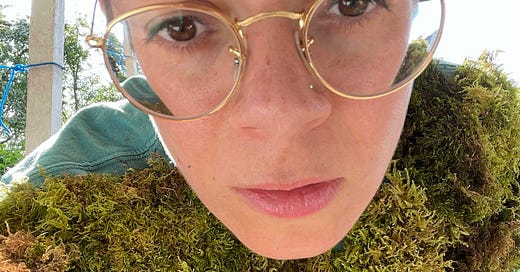When me and my brother arrived at the hospital in Castlebar, it was about two in the morning. The flight over had been delayed. The lady in the seat next to me had asked if this would have an impact on my onward journey. I replied, “something like that”. The rental car had cost a small fortune and google maps had pinned me somewhere in the middle of space whilst I went round and round a roundabout waiting for it to right itself and point me west. When we arrived in darkness, my mum stood silhouetted in the fire exit, holding it ajar. Visiting hours had no impact on our situation. She said to us, “Prepare yourselves.” I remember replying, “Mum, how can we ever prepare ourselves for this?”
It was impossible to believe that I had been at a festival that morning, eating porridge and thinking about going for a swim. My raincoat still smelled of the fires I had sat around the evening before, as circus performers twirled in midair, held up by nothing but faith.
How do we prepare for disaster? I used to think that somehow worry would protect me from devastation, but this turned out, in the end, to be painfully useless. You cannot worry someone alive. Fear alone won’t stop the plane from falling from the sky, though I know how it feels to work the muscle of your brain in that way, willing things to be good, safe, alive.
I’m about to go on a survivalism course. I’m going to sleep under a branch for two days and learn how to make fire without a match. I consider myself to be a low-key prepper, in that I have bottles of drinking water in the garage, a box of candles and lighters under the stairs (alongside more emergency water) and I grow my own food (sort of). I like to think that I’d do okay in a power grid failure situation. I like to be prepared. I don’t rely on things going to plan, because I know that they often don’t. I like to feel as if I have considered all the possible outcomes of a situation and readied myself for them. I have a plan A and a plan B and often a plan C. I take a mental note of all the fire exits when I walk into a club or venue. I think we call this anxiety.
So how do we recover philosophically from meeting our worst fears? The things we have tried and failed to prevent with our will? Perhaps recovery and preparation are not the same thing. I have spent my life trying to prepare for the worst by simply hoping it would never happen. In the end it took some primal ancient knowing to guide me through that first phase of disaster. Something existential, some deep and previously unused power. We sat and watched the saddest story unfold in our laps, and there was nothing we could do to alter those pages. We talked, we laughed, we drank tea. We watched nurses dancing through the aisles of death with beauty, blitheness, grace. Washing and plaiting my sister’s hair. Nothing could have prepared me except, perhaps, Jessie. She had made me tough and practical, self-aware enough not to be self-involved. She big-sistered the hell out of me and she had loved and supported the bond between myself and her children. She told me to be nice to Mum. All these things were the things I needed when the plane fell. How to breathe, how to comfort, how to sort. Her intensely practical spirit possessed me in those first few days of chaos. How to separate our self-pity from what is necessary, what needs to be done, who needs tending first. I kept hearing her say, “it’s not about YOU,” and that was my mantra until I got home and could curl up in a ball of my own pain and immerse myself in my own loss. Jessie was my survivalism course. Through my childhood years she would quite literally jump out from behind doors with spiders (real or invented) in her cupped hands reducing me to tears of horror, and she would laugh and laugh. She prepared me, with loyalty, devotion, faith, humour and love.




Liz, this is beautiful.